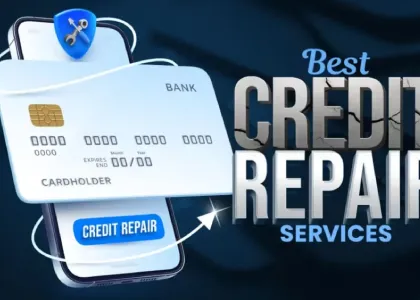
Financial Improvement Tips: Strategies to Increase Your Credit Score

Introduction to Financial Improvement and Credit Scores
Improving your finances begins with understanding your credit score. Think of your credit score like a financial report card that lenders use to decide if they want to lend you money or give you a credit card. It shows how good you are at paying back money you borrow. The better your score, the easier you get loans with lower interest rates. Scores range typically from 300 to 850. A higher score opens doors to better deals on loans, credit cards, and even affects your insurance rates or rental opportunities. Improving your score involves paying bills on time, keeping debt low, and fixing any mistakes on your credit report. Starting here, you’re taking the first step toward better financial health.
Understanding Your Current Credit Score
Before diving into ways to boost your score, let’s get why knowing your current credit score matters. Your credit score is like a financial report card that lenders look at to decide if they’ll lend you money. The score ranges from 300 to 850. A higher score means you’re seen as less risky, which can get you better interest rates on loans and credit cards. Checking your score doesn’t hurt it, so no worries there. You can get your score for free from many credit card providers or purchase it from the three major credit bureaus: Equifax, Experian, and TransUnion. Once you know your score, compare it against these ranges: 300-579 is considered poor; 580-669 is fair; 670-739 is good; 740-799 is very good; and 800 and up is excellent. Understanding where you stand is the first step. If your score is lower than you’d like, that’s okay. Knowing your starting point means you know what you need to work on.
The Importance of Reviewing Your Credit Report
Checking your credit report is a key step in managing your finances. Why? It’s the blueprint lenders use to decide how much trust they can put in you with their money. Think of it like checking the weather before a hike. You wouldn’t want to get caught in a storm, right? Your credit report can have mistakes, and those errors can mess with your score. Imagine paying your bills on time but your report wrongly shows you didn’t. Not cool.
You can get a free credit report every year from the three big credit bureaus. Going through it gives you the chance to find mistakes and get them fixed. This isn’t just about accuracy – it’s about protecting yourself from identity theft too. If you see accounts or activities you don’t recognize, that could be a red flag someone else is using your name.
So, make reviewing your credit report a regular habit. It’s about knowing where you stand and making sure you’re in the clear. Plus, when you know your score, you can make smarter moves to improve it. It’s a simple step, but it’s one that can really pay off.
Strategies to Reduce Debt Effectively
To slash your debt, start with these straightforward strategies. First, always pay more than the minimum on your credit card bills. Even a little extra can cut down the interest you’ll pay in the long run. Second, focus on the debts with the highest interest rates. Tackling these first reduces the amount of interest piling up. Consider the debt snowball method – pay off your smallest debts first to build momentum, then move on to bigger ones. It’s a psychological win that keeps you motivated. Also, look into consolidating your debt. This means combining multiple debts into one with a lower interest rate, making payments more manageable. Lastly, set a budget and stick to it. Track your spending to find areas where you can cut back and funnel that extra money towards your debt. Cutting down on unnecessary expenses frees up more cash for debt repayment. Stay disciplined and focused, and you’ll see your debt shrink over time.
The Impact of Paying Bills on Time
Paying bills on time is crucial if you’re aiming to boost your credit score. Think of your credit report as a report card but for your finances. Just like in school, consistent performance is key. Each time you pay a bill on time, it’s like scoring an ‘A’ on an assignment. This tells lenders you’re reliable, making them more likely to trust you with their money. Late payments, however, are red flags that can seriously harm your credit score. Even a single late payment can sting, pulling down your score and potentially jacking up interest rates on future loans. It’s simple: Want a better credit score? Pay your bills when they’re due. It’s one of the easiest strategies to follow but also one of the most effective. Keep your payment game strong, and your credit score will follow suit.
How to Increase Credit Limits Responsibly
Getting a higher credit limit isn’t just about spending more. It’s a tactic to improve your credit score, if you do it right. Here’s the deal: The trick lies in your credit utilization ratio, which is how much you owe compared to your total credit limit. Lowering this ratio by upping your credit limit—without increasing your spending—can boost your score. First, never ask for a hike too often; it’s a red flag for creditors. Aim to request an increase every 6 to 12 months. When you do ask, be prepared. Creditors might ask why you want more credit. A good reason? You’re planning large purchases that you can pay off quickly. Remember, a higher limit isn’t for spending more. It’s for managing what you spend smarter. When done for the right reasons, increasing your credit limits can be a savvy financial move. Stay disciplined, and your credit score could see real benefits.
The Role of Credit Mix in Your Credit Score
Your credit mix plays a crucial part in determining your credit score. In simple terms, credit mix refers to the types of credit accounts you have, such as credit cards, student loans, mortgages, and car loans. Credit scoring models look for a mix because this showcases your ability to manage different types of credit responsibly. It makes up about 10% of your FICO score, which might seem small, but can be the difference in obtaining a favorable interest rate or not. Here’s a quick breakdown: having a variety of credit accounts can boost your score, but does not mean you should open accounts you don’t need. It’s more about how you manage the credit you have than just having a mix for the sake of it. So focus on paying your bills on time and keeping your balances low across all account types. This strategy shows lenders you’re both versatile and responsible with credit.
Tips for Keeping Older Credit Accounts Open
One quick way to boost your credit score is by keeping your old credit accounts open. It might seem easier to close them, especially if you don’t use them much, but here’s the thing: credit history makes up a big part of your credit score. The longer your history, the better it looks to lenders. So, if you have credit cards or other accounts that you’ve had for years, think twice before shutting them down. Keeping these accounts open, even with a zero balance, can show a stable and lengthy credit history. And here’s a pro tip: use these old accounts for small purchases once in a while. Then, pay them off immediately. This keeps the account active without costing you in interest. Just remember, the goal is to show you can manage credit well over time. So, keep those old accounts open, and you’re on your way to a healthier credit score.
Avoiding New Credit Pitfalls
When you’re on a mission to boost your credit score, one key move is to steer clear of grabbing new credit cards or loans. Why? Each time you apply for credit, a hard inquiry hits your credit report. This can temporarily ding your score. Think of it like this: if you keep asking around for credit, lenders might think you’re in a financial pinch, making you look riskier. Stick to the credit you already have and work on paying those balances down. If you absolutely need to take on new credit, do so sparingly and be strategic, ensuring it genuinely benefits your overall financial health. Remember, patience and consistency with the credit you currently manage can lead to a healthier score over time.
Conclusion: Maintaining Good Financial Habits for Continuous Improvement
Staying on top of your financial game is a never-ending battle, but it’s well worth the effort. Consistently applying the strategies we’ve discussed will not only boost your credit score but also keep it healthy in the long run. Remember, it’s about forming good habits: pay your bills on time, every time; keep those credit card balances low; and avoid opening too many new accounts too quickly. It’s the small, steady steps that lead to big improvements. And if you ever slip, get back on track as soon as possible. Your financial health is in your hands, and the power to improve it is, too. Keep at it, and you’ll see the results in your credit score—and in your peace of mind.

